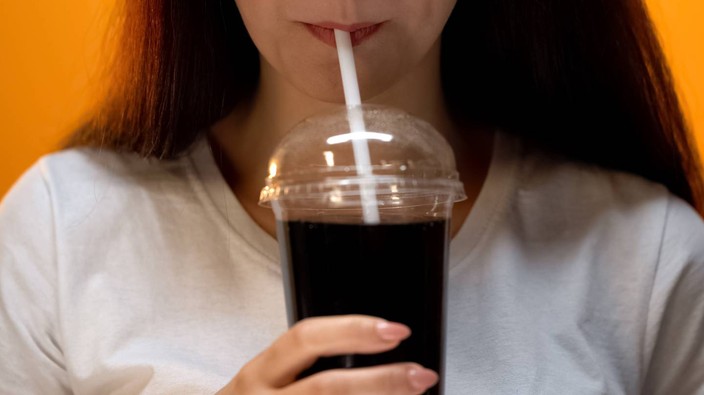loading up on sugar-sweetened soda during adolescence and adulthood is tied to an increased risk of colorectal cancer in women under 50, a new study has found.the research,
published in the journal gut, explored the connection between the early appearance of the deadly disease and the rising popularity of sugary soda over the past 20 years.“colorectal cancer in younger adults remains relatively rare, but the fact that the rates have been increasing over the past three decades — and we don’t understand why — is a major public health concern and a priority in cancer prevention,”
said yin cao, senior author of the study and an associate professor of surgery and of medicine in the division of public health sciences at washington university.“due to the increase in colorectal cancer at younger ages, the average age of colorectal cancer diagnosis has gone down from 72 years to 66 years. these cancers are more advanced at diagnosis and have different characteristics compared with cancers from older populations.”colorectal cancer is the third-most diagnosed cancer in canada, with just under 27,000 new cases arising in 2020,
according to cancer.ca. it is the second leading cause of death from cancer in men and third in women. with approximately 73 canadians receiving the dire diagnosis — and another 27 dying from the disease — every day, identifying new causes and interventions have become a priority among researchers.
“our lab is funded by the national cancer institute (nci) and the national comprehensive cancer network to identify risk factors, the molecular landscapes, and precision screening strategies for these cancers so that they can be detected earlier and even prevented,” cao said. “in past work, we have shown that poor diet quality was associated with increased risk of early-onset colorectal cancer precursors but we have not previously examined specific nutrients or foods.”researchers decided to focus on sugar-infused soda because heavy consumption of the beverages has been tied to
obesity and type 2
diabetes — in both children and adults — but its role in cancer rates has been less clear. consumption of such beverages has risen alongside the rate of colorectal cancer over the past two decades, with adolescents and adults aged 20 to 34 doing most of the heavy lifting.the study found women who consumed two or more eight ounce servings of sugary soda per day had more than twice the risk of developing early-onset colorectal cancer compared to women who drank less than one eight ounce serving per week. each eight ounce serving carried a 16 per cent increase in risk of an early onset of the disease, which was defined as a diagnosis before the age of 50. between the vital developmental ages of 13 and 18, each daily serving was tied to a 32 per cent increase in the risk of early diagnosis.the study relied on health data from over 116,000 women from the nurses’ health study ii, a large population study of female nurses from 1991-2015, which includes the results from questionnaires on food and beverage intake that were completed every four years. researchers found 109 cases of colorectal cancer among participants during the course of the study.“despite the small number of cases, there is still a strong signal to suggest that sugar intake, especially in early life, is playing a role down the road in increasing adulthood colorectal cancer risk before age 50,” said cao. “this study, combined with our past work linking
obesity and metabolic conditions to a higher risk of early-onset colorectal cancer, suggests that metabolic problems, such as insulin resistance, may play an important role in the development of this cancer in younger adults.”the american cancer society has already lowered its age recommendation for colonoscopy screenings, from 50 to 45, for adults with typical risk factors for the disease. those carrying additional risk should begin screening even earlier, the group said.
the study, which had several shortcomings that need to be addressed by future research — most notably that the subject pool was largely female and white — also identified two other beverages that were tied to better long-term health outcomes that should be considered instead of sugar-infused soda, researchers said.“given this data, we recommend that people avoid sugar-sweetened beverages and instead choose drinks like milk and coffee without sweeteners.”
dave yasvinski is a writer with healthing.ca
 3 minute read
3 minute read








